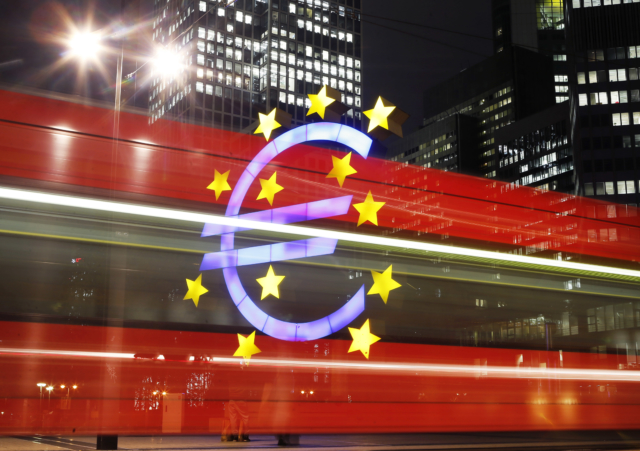The European Central Bank announced it won’t expand its current stimulus programs despite the growing threat of deflation in the Eurozone and the bloc’s ongoing economic stagnation. The bank’s chief, Mario Draghi, also quashed rumors of divisions among board members, making it clear the decision to take stronger measures, if needed, was unanimous. CCTV America’s Jack Barton reported this story from Brussels.

After its monthly board meeting, the European Central Bank announced its key lending rate would remain at the current record low, hovering just above zero. There was also no change to the bank’s current stimulus programs aimed at getting banks to lend more money to households and small businesses.
Far stronger economy-boosting measures adopted by other countries such as large-scale purchases of government bonds, known as quantitative easing, still appear distant in the Eurozone. This is mainly due to political resistance, particularly in Berlin, although Draghi insisted quantitative easing is still an option.
“There are two contingencies we are looking at. The first contingency is that our current measures are not enough. The second contingency is if our medium-term outlook for inflation expectations were to worsen, the Governing Council is unanimous in its commitment to use additional unconventional instruments within its mandate,” said Draghi.
It was a powerful message aimed at dispelling rumors that there was growing tension between Draghi and the other governors, said Philippe Ledent, a senior economist at ING.
“It’s quite a clear message… I think today clearly confirmed there is one single line, at the end, and the line is to say that they are ready to go further if needed. In recent months, the ECB has cut rates, offered ultra cheap money to banks and started purchasing bundles of their loans,” said Ledent.
The hope is the plan will boost recovery in the Eurozone after a debt crisis that led governments to cut spending, raise taxes, and deal with growing public discontent. Even as the ECB board met, transportation workers protesting against lower wages, longer hours, and thousands of pending job cuts, paralyzed Belgium and Germany. The Eurozone saw no growth in the second quarter and few economists expect third quarter figures will be much better when they’re released at the end of next week.
Nicholas Economides of NYU discusses the current state of Eurozone
CCTV America interviewed Nicholas Economides, economics professor at NYU’s Stern School of Business, to discuss the growing threat of deflation in the Eurozone.

 CGTN America
CGTN America
